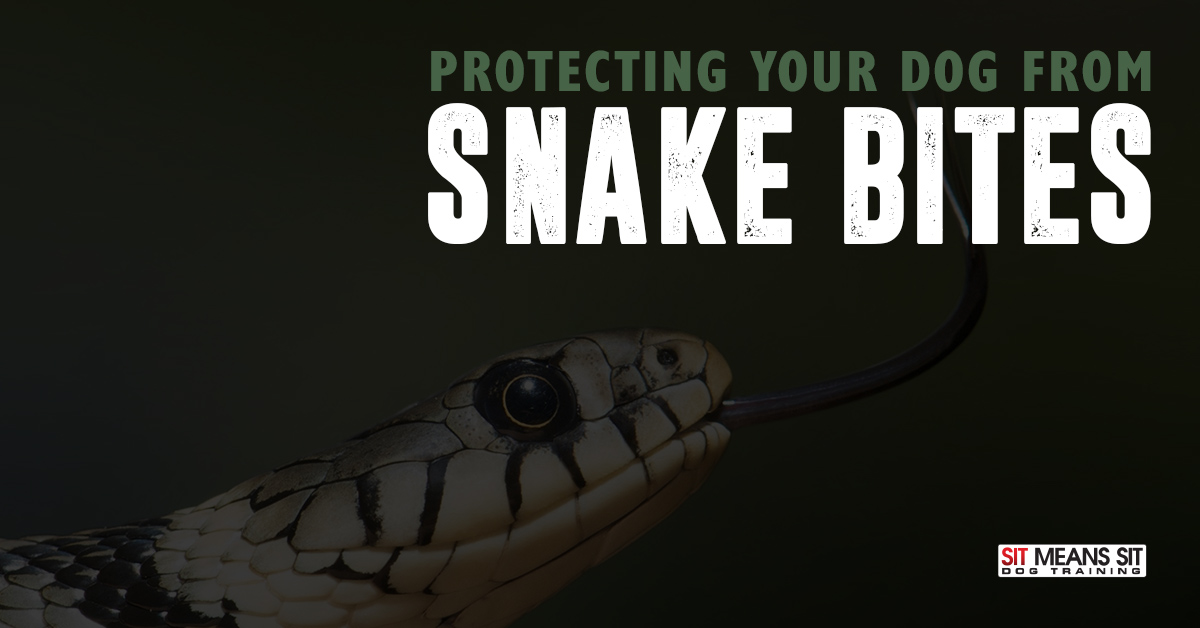
Protecting Your Dog From Snake Bites
It’s summertime and hot weather is prime time for snake activity. It is estimated that there are more than 100,000 venomous snakebites that occur in dogs and cats every year with a mortality rate of 1% to as high as 30%. We want to make sure you know how to keep your pets safe from snakes this summer.
Common Venomous Snakes
The four types of venomous snakes in the United States are:
- Coral snakes
- Water moccasins (Cottonmouths)
- Copperheads
- Rattlesnakes
Except for coral snakes, all of the above are considered “pit vipers” and can be recognized by the following characteristics:
- Vertical, slit-like pupils. Most non-venomous snakes have round pupils
- Triangular head
- Facial pits between their eyes and nostrils, used to sense heat
- Big, fat bodies
Avoiding Snake Bites
The most important thing you can do is keep your dog on a leash and monitor them while you’re on a walk. You can prevent your dog from sticking his face into a heavy brush or his nose into rock crevices where snakes may be. It also helps to stay on well-worn trails so you can see what’s ahead.
There is currently a rattlesnake vaccine available for dogs that produces neutralizing antibodies against Western Diamondback venom. There is no evidence that it works for other venomous snake bites, but it could decrease the severity of clinical signs. Consider talking to your vet about getting your dog vaccinated if you live in an area where Western Diamondbacks are common: Southeastern California, Arizona, New Mexico, Texas and Oklahoma.
Managing Snake Bites
If your pet is bitten by a venomous snake, get them to a veterinarian as soon as possible! Carry your dog if you can and do not waste time performing first aid — sucking out venom does not work so do not attempt that!
Once you are at the vet’s office, they will start IV fluids and give pain medication to treat shock. Antivenom should be given if it is available. Tissue damage will develop and progress over a few days. Sometimes extended wound care is needed as tissue dies off and new tissue grows. Most pets will recover with prompt and appropriate treatment, but snake bites can be fatal. There are high fatality rates for dogs who are bitten on the tongue or the chest and for pets who have a long delay between the bite and vet treatment.
If you experience a snake encounter with your pet, make sure to get to the emergency veterinarian and call the ASPCA Animal Poison Control Center at (888) 426-4435 right away. Stay safe out there!
